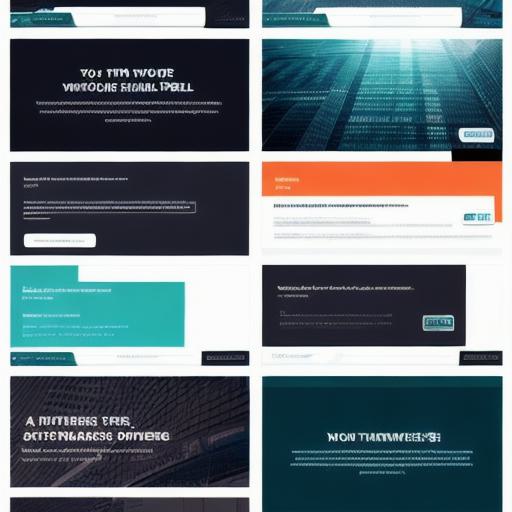- Top 5 Marketing Tools Every Business Needs
3. How to Choose the Right Marketing Tool for Your Business
4. Optimizing Your Marketing Strategy with the Best Tools
5. Boosting Your Business through Effective Marketing Promotion
6. Case Studies: Success Stories of Businesses That Used Marketing Tools
7. The Benefits of Using Marketing Tools in Your Promotional Efforts
8. Overcoming Common Challenges When Implementing Marketing Tools
- Future Trends in Marketing Tool Usage
10. Summary: Harnessing the Power of Marketing Tools for Business Growth
11. FAQs: Frequently Asked Questions About Marketing Tools

Title: The Ultimate Guide to Marketing Tools for Promotion: How They Can Help Boost Your Business
Introduction:
In today’s fast-paced business environment, it is crucial to have the right tools at your disposal to help you promote your products or services effectively. With so many marketing tools available in the market, it can be overwhelming to choose the best ones for your business. However, using the right marketing tool can make a significant difference in your promotion efforts and ultimately lead to increased revenue and growth.
In this ultimate guide, we will explore the top 5 marketing tools that every business needs, how to choose the right one for your business, and how to optimize your marketing strategy with these tools. We will also share real-life examples of businesses that have successfully used these tools, and provide a comprehensive overview of their benefits and challenges.

Top 5 Marketing Tools Every Business Needs:
1. Social Media Marketing Tools: Social media platforms such as Facebook, Instagram, and Twitter are powerful marketing tools that can help you reach a wider audience and increase brand awareness. They offer various features such as paid advertising, analytics, and engagement tools that enable businesses to target specific audiences, track the performance of their campaigns, and engage with customers effectively.
2. Email Marketing Tools: Email marketing is a highly effective way to communicate with your customers directly and promote your products or services. It allows businesses to send personalized messages to their subscribers and nurture leads through a targeted email campaign. Tools such as Mailchimp, Constant Contact, and Campaign Monitor offer various features such as automation, analytics, and design templates that make it easy for businesses to create and manage effective email campaigns.
3. Search Engine Optimization (SEO) Tools: SEO is the process of optimizing your website and its content to rank higher in search engine results pages (SERPs). It helps businesses improve their online visibility, drive more traffic to their website, and increase conversion rates. Tools such as Google Analytics, Ahrefs, and SEMrush offer various features such as keyword research, backlink analysis, and on-page optimization that enable businesses to improve their SEO efforts.
4. Content Marketing Tools: Content marketing is a highly effective way to engage with your audience, build brand awareness, and drive traffic to your website. It involves creating valuable and informative content such as blog posts, videos, and infographics that resonate with your target audience. Tools such as HubSpot, Buffer, and Yoast SEO offer various features such as content creation, scheduling, and optimization that make it easy for businesses to create and manage effective content marketing campaigns.
5. Customer Relationship Management (CRM) Tools: CRM tools help businesses manage their customer relationships effectively by storing and organizing customer data, tracking interactions, and automating tasks. They enable businesses to provide better customer service, build loyalty, and increase revenue. Tools such as Salesforce, Zoho, and Microsoft Dynamics offer various features such as sales automation, lead management, and analytics that make it easy for businesses to manage their CRM effectively.
How to Choose the Right Marketing Tool for Your Business:
Choosing the right marketing tool for your business can be a daunting task, especially with so many options available in the market. To help you make an informed decision, consider the following factors when choosing a marketing tool:
1. Your Target Audience: Understanding your target audience’s needs and preferences is crucial when choosing a marketing tool. Consider the demographics of your audience and choose a tool that can help you reach them effectively.
2. Your Goals: Define your goals for using the marketing tool, whether it is to increase brand awareness, drive traffic to your website, or generate leads. Choose a tool that aligns with your goals and provides the features you need to achieve them.
3. Your Budget: Determine your budget for using the marketing tool and choose one that fits within your financial constraints. Consider the pricing model of the tool, whether it is a subscription-based, pay-as-you-go, or a one-time fee.
4. Your Industry: Choose a marketing tool that is relevant to your industry and can help you stay up-to-date with the latest trends and best practices in your field.
5. Your Existing Tools: Consider your existing tools and choose a marketing tool that integrates with them seamlessly, enabling you to streamline your workflow and avoid data silos.
Optimizing Your Marketing Strategy with the Best Tools:
Once you have chosen the right marketing tool for your business, it is time to optimize your strategy and make the most of it. Here are some tips on how to do that effectively:
1. Define Your KPIs: Identify the key performance indicators (KPIs) that you will use to measure the success of your campaign and track your progress towards them.
2. Develop a Content Strategy: Create a content strategy that aligns with your goals, target audience, and marketing tool. Use the features of your tool to create valuable and informative content that resonates with your audience.
3. Implement Personalization: Use the data collected by your marketing tool to personalize your messaging and targeting. Personalized content is more likely to engage your audience and drive better results.
4. Test and Optimize: Continuously test and optimize your campaigns using the features of your marketing tool. Experiment with different messaging, targeting, and ad formats to see what works best for your business.
5. Collaborate with Your Team: Use your marketing tool to collaborate with your team and streamline your workflow. Share insights and data across teams and use the tool’s integrations to avoid data silos.
Boosting Your Business through Effective Marketing Promotion:
Effective marketing promotion can make a significant difference in the success of your business. By using the right marketing tools and optimizing your strategy, you can drive more traffic to your website, increase brand awareness, and generate leads. Here are some real-life examples of businesses that have successfully used marketing tools to boost their business:
1. HubSpot: HubSpot is a leading inbound marketing software that helps businesses attract and convert leads through personalized content, analytics, and customer service. They use their own tool to generate leads, nurture them through the sales funnel, and measure the ROI of their campaigns.
2. Airbnb: Airbnb is a vacation rental marketplace that uses social media marketing tools to promote its listings and attract new users. They use Instagram and Facebook to showcase their unique listings, engage with their audience, and drive bookings.
3. Zappos: Zappos is an online shoe retailer that uses email marketing tools to nurture leads and drive sales. They use personalized emails, targeted offers, and customer reviews to build trust and loyalty with their customers.
4. Dollar Shave Club: Dollar Shave Club is a subscription-based service that uses content marketing tools to engage its audience and promote its products. They create humorous and informative videos that resonate with their target audience and drive sales.
5. Zoho: Zoho is a CRM software that uses customer relationship management tools to manage its own sales and customer service operations. They use data analytics, personalized messaging, and automation to improve their customer experience and increase revenue.
In conclusion, choosing the right marketing tool for your business and optimizing your strategy can make a significant difference in the success of your business. By defining your goals, target audience, and KPIs, using the features of your tool effectively, and collaborating with your team, you can drive more traffic to your website, increase brand awareness, and generate leads.




